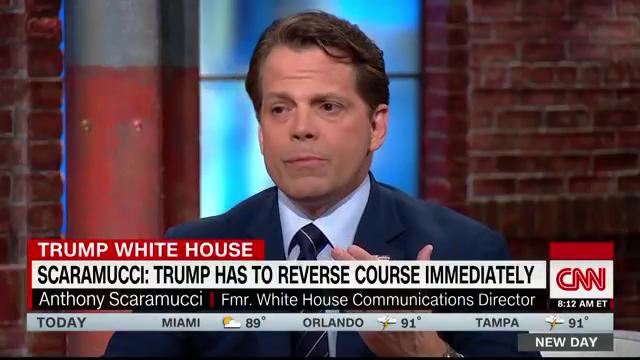Will Carney Secure CUSMA's Future In Talks With Trump?

Table of Contents
Key Challenges Facing CUSMA's Renewal
The renewal and continued success of CUSMA face significant hurdles. Successfully navigating these challenges requires skilled diplomacy and a deep understanding of the intricate political and economic landscape.
Trump Administration's Trade Protectionism
The Trump administration's history of protectionist trade policies cast a long shadow over CUSMA. His "America First" approach frequently prioritized domestic industries, often at the expense of international trade agreements. This created considerable uncertainty and tension in the Canada-US relationship.
- Increased Tariffs: The imposition of tariffs on Canadian goods, particularly steel and aluminum, exemplified the administration's willingness to use trade as a tool to exert pressure.
- Renegotiation Demands: The Trump administration's repeated calls for renegotiating the agreement, often demanding significant concessions from Canada, created instability and uncertainty.
- Potential Withdrawal Threats: The threat of withdrawing from CUSMA entirely served as a powerful bargaining chip, highlighting the volatile nature of the negotiations. These actions created uncertainty within the Canadian business community, impacting investment and planning.
Domestic Political Landscape in Both Countries
The domestic political landscapes in both Canada and the US presented additional challenges. Internal divisions and differing priorities complicated the negotiation process.
- Canadian Concerns about Specific Clauses: Within Canada, various sectors expressed concerns about specific clauses within CUSMA, particularly those relating to dispute resolution mechanisms and intellectual property rights. These concerns necessitated careful consideration and compromise during negotiations.
- US Political Divisions on Trade: In the US, strong divisions existed regarding the merits of free trade agreements. Navigating these divisions and securing bipartisan support for CUSMA proved difficult, impacting the overall negotiation strategy.
Economic Implications of CUSMA Failure
The potential consequences of CUSMA's collapse were severe, impacting both the Canadian and US economies. The automotive and agricultural sectors stood to be particularly hard hit.
- Job Losses: The failure of CUSMA would have likely resulted in significant job losses in both countries, particularly in industries heavily reliant on cross-border trade.
- Trade Disruptions: The disruption of established trade flows would have caused economic uncertainty and instability, leading to decreased investment and consumer confidence.
- Economic Slowdown: The overall economic impact of CUSMA's failure could have been substantial, potentially triggering a regional or even global economic slowdown.
Carney's Approach and Strategies
While the specific negotiator may vary over time, the strategies employed remain relevant in understanding the complexities of navigating Canada-US trade relations. Successful negotiation required a multifaceted approach.
Negotiating Style and Experience
The Canadian negotiator needed a deep understanding of both the US political system and the intricacies of international trade law. Effective communication, compromise, and skillful diplomacy were crucial.
- Proven Negotiation Successes: A strong track record of successful negotiations in high-stakes situations was essential to build credibility and inspire confidence.
- Ability to Compromise: The ability to find common ground and forge compromises, while protecting Canada's interests, was paramount.
- Diplomatic Skills: Masterful diplomatic skills were essential to navigating the complex political landscape and managing relationships with counterparts in the US administration.
Canada's Negotiating Position and Leverage
Canada possessed certain strengths in the negotiations. Understanding and leveraging these was critical.
- Economic Interdependence: The deep economic interdependence between Canada and the US provided Canada with significant leverage. The US also benefited from seamless trade with Canada.
- Shared Interests: Despite differences, significant shared interests existed, providing a basis for mutually beneficial agreements.
- Potential for Alternative Trade Partners: While not ideal, exploring alternative trade partners provided Canada with leverage, suggesting the possibility of shifting trade relationships if necessary.
Public Relations and Diplomacy
Public relations and international diplomacy played a crucial role in shaping public opinion and building support for CUSMA.
- Media Strategy: A proactive media strategy was crucial to effectively communicating Canada's negotiating position and building public support.
- International Alliances: Working with international allies to create a united front on trade issues could strengthen Canada's negotiating position.
- Building Bipartisan Support: Building bipartisan support within the US Congress was also a critical aspect of the negotiation strategy.
CUSMA's Fate Hinges on Skilled Diplomacy: Can Carney Deliver?
Securing a successful outcome for CUSMA required skillful diplomacy, a deep understanding of the complexities involved, and the ability to navigate the often-turbulent waters of international trade relations, especially under previous US administrations. The economic consequences of both success and failure are significant. A successful outcome safeguards Canada's economic prosperity, while failure would inflict substantial economic damage. The likelihood of success depended heavily on the negotiator's ability to effectively manage the challenges discussed above. Follow the CUSMA negotiations closely to stay informed about the future of Canada-US trade relations and learn more about the critical role of CUSMA in Canada’s economy.

Featured Posts
-
 Kentucky Derby 2025 Top Contenders And Betting Odds
May 05, 2025
Kentucky Derby 2025 Top Contenders And Betting Odds
May 05, 2025 -
 Ufc Des Moines Robertson Du Canada Face A Sidey Dans Un Combat Captivant
May 05, 2025
Ufc Des Moines Robertson Du Canada Face A Sidey Dans Un Combat Captivant
May 05, 2025 -
 Ftc Investigates Open Ais Chat Gpt What It Means For Ai
May 05, 2025
Ftc Investigates Open Ais Chat Gpt What It Means For Ai
May 05, 2025 -
 Critique Du Manque De Consultation Publique Sur La Politique De Defense Francaise
May 05, 2025
Critique Du Manque De Consultation Publique Sur La Politique De Defense Francaise
May 05, 2025 -
 Kolkata Weather Update Thunderstorm Prediction By Me T Department
May 05, 2025
Kolkata Weather Update Thunderstorm Prediction By Me T Department
May 05, 2025
